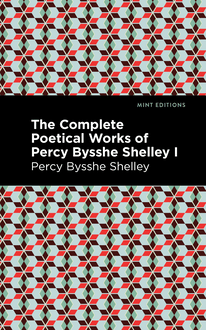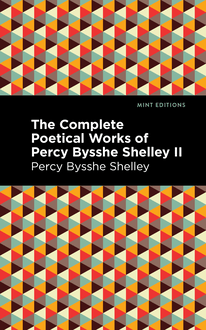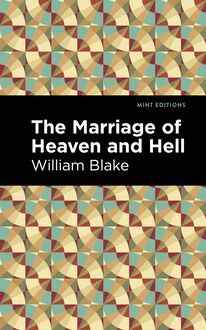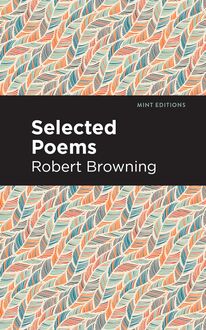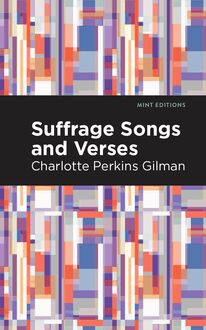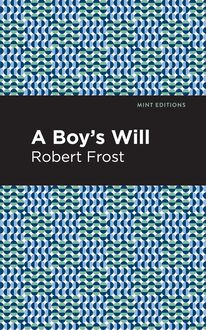-
 Univers
Univers
-
 Ebooks
Ebooks
-
 Livres audio
Livres audio
-
 Presse
Presse
-
 Podcasts
Podcasts
-
 BD
BD
-
 Documents
Documents
-
- Cours
- Révisions
- Ressources pédagogiques
- Sciences de l’éducation
- Manuels scolaires
- Langues
- Travaux de classe
- Annales de BEP
- Etudes supérieures
- Maternelle et primaire
- Fiches de lecture
- Orientation scolaire
- Méthodologie
- Corrigés de devoir
- Annales d’examens et concours
- Annales du bac
- Annales du brevet
- Rapports de stage
La lecture à portée de main
Vous pourrez modifier la taille du texte de cet ouvrage
Découvre YouScribe en t'inscrivant gratuitement
Je m'inscrisDécouvre YouScribe en t'inscrivant gratuitement
Je m'inscrisEn savoir plus
Vous pourrez modifier la taille du texte de cet ouvrage
En savoir plus

Description
Mountain Interval (1916) is a collection of poems by American poet Robert Frost. Having gained success with his first two collections, both published in London, Frost returned home to New Hampshire and completed his third volume, Mountain Interval. The book opens with “The Road Not Taken,” and though this would become Frost’s most famous poem, the collection is not defined by it. Here we find the hallmarks of Frost’s work: rural landscapes, dramatic monologues, and subtle meditations on the meanings of life and art. This is Frost at the height of his power, a poetry that speaks as much and as often as it listens.
“The Road Not Taken” is a meditation on fate and free will that follows a traveler in an autumn landscape, unsure of which path to take, but certain he cannot stand still. Often summarized using only its final two lines—“I took the one less traveled by, / And that has made all the difference”—Frost’s poem refuses such neat categorization. Far from simple praise of independence, “The Road Not Taken” examines the anxiety of choice, the psychic response to the uncertainty that precedes even the simplest decision. In “Birches,” Frost recalls his childhood fondness for climbing trees, raising himself from the ground “To the top branches,” only to fling himself “outward, feet first” back to earth. Against the backdrop of adulthood, in which “life is too much like a pathless wood,” the poet recalls the simplicity and wonder of being a child in nature, no more and no less than “a swinger of birches.”.
With a beautifully designed cover and professionally typeset manuscript, this edition of Robert Frost’s Mountain Interval is a classic of American literature reimagined for modern readers.
Sujets
Informations
| Publié par | Mint Editions |
| Date de parution | 01 février 2021 |
| Nombre de lectures | 1 |
| EAN13 | 9781513275918 |
| Langue | English |
| Poids de l'ouvrage | 2 Mo |
Informations légales : prix de location à la page 0,0300€. Cette information est donnée uniquement à titre indicatif conformément à la législation en vigueur.
Extrait
Mountain Interval
Robert Frost
Mountain Interval was first published in 1916.
This edition published by Mint Editions 2020.
ISBN 9781513270913 | E-ISBN 9781513275918
Published by Mint Editions®
minteditionbooks.com
Publishing Director: Jennifer Newens
Design & Production: Rachel Lopez Metzger
Project Manager: Micaela Clark
Typesetting: Westchester Publishing Services
C ONTENTS T HE R OAD NOT T AKEN C HRISTMAS T REES A N O LD M AN’S W INTER N IGHT A P ATCH OF O LD S NOW I N THE H OME S TRETCH T HE T ELEPHONE M EETING AND P ASSING H YLA B ROOK T HE O VEN B IRD B OND AND F REE B IRCHES P EA B RUSH P UTTING IN THE S EED A T IME TO T ALK T HE C OW IN A PPLE T IME A N E NCOUNTER R ANGE -F INDING T HE H ILL W IFE I. Loneliness—Her Word II. House Fear III. The Smile—Her Word IV. The Oft-Repeated Dream V. The Impulse T HE B ONFIRE A G IRL’S G ARDEN T HE E XPOSED N EST “O UT , O UT —” B ROWN’S D ESCENT OR THE W ILLY -N ILLY S LIDE T HE G UM -G ATHERER T HE L INE -G ANG T HE V ANISHING R ED S NOW T HE S OUND OF THE T REES
T HE R OAD NOT T AKEN
Two roads diverged in a yellow wood,
And sorry I could not travel both
And be one traveler, long I stood
And looked down one as far as I could
To where it bent in the undergrowth;
Then took the other, as just as fair,
And having perhaps the better claim,
Because it was grassy and wanted wear;
Though as for that the passing there
Had worn them really about the same,
And both that morning equally lay
In leaves no step had trodden black.
Oh, I kept the first for another day!
Yet knowing how way leads on to way,
I doubted if I should ever come back.
I shall be telling this with a sigh
Somewhere ages and ages hence:
Two roads diverged in a wood, and I—
I took the one less traveled by,
And that has made all the difference.
C HRISTMAS T REES
(A Christmas Circular Letter)
The city had withdrawn into itself
And left at last the country to the country;
When between whirls of snow not come to lie
And whirls of foliage not yet laid, there drove
A stranger to our yard, who looked the city,
Yet did in country fashion in that there
He sat and waited till he drew us out
A-buttoning coats to ask him who he was.
He proved to be the city come again
To look for something it had left behind
And could not do without and keep its Christmas.
He asked if I would sell my Christmas trees;
My woods—the young fir balsams like a place
Where houses all are churches and have spires.
I hadn’t thought of them as Christmas Trees.
I doubt if I was tempted for a moment
To sell them off their feet to go in cars
And leave the slope behind the house all bare,
Where the sun shines now no warmer than the moon.
I’d hate to have them know it if I was.
Yet more I’d hate to hold my trees except
As others hold theirs or refuse for them,
Beyond the time of profitable growth,
The trial by market everything must come to.
I dallied so much with the thought of selling.
Then whether from mistaken courtesy
And fear of seeming short of speech, or whether
From hope of hearing good of what was mine,
I said, “There aren’t enough to be worth while.”
“I could soon tell how many they would cut,
You let me look them over.”
“You could look.
But don’t expect I’m going to let you have them.”
Pasture they spring in, some in clumps too close
That lop each other of boughs, but not a few
Quite solitary and having equal boughs
All round and round. The latter he nodded “Yes” to,
Or paused to say beneath some lovelier one,
With a buyer’s moderation, “That would do.”
I thought so too, but wasn’t there to say so.
We climbed the pasture on the south, crossed over,
And came down on the north.
He said, “A thousand.”
“A thousand Christmas trees!—at what apiece?”
He felt some need of softening that to me:
“A thousand trees would come to thirty dollars.”
Then I was certain I had never meant
To let him have them. Never show surprise!
But thirty dollars seemed so small beside
The extent of pasture I should strip, three cents
(For that was all they figured out apiece),
Three cents so small beside the dollar friends
I should be writing to within the hour
Would pay in cities for good trees like those,
Regular vestry-trees whole Sunday Schools
Could hang enough on to pick off enough.
A thousand Christmas trees I didn’t know I had!
Worth three cents more to give away than sell,
As may be shown by a simple calculation.
Too bad I couldn’t lay one in a letter.
I can’t help wishing I could send you one,
In wishing you herewith a Merry Christmas.
A N O LD M AN’S W INTER N IGHT
All out of doors looked darkly in at him
Through the thin frost, almost in separate stars,
That gathers on the pane in empty rooms.
What kept his eyes from giving back the gaze
Was the lamp tilted near them in his hand.
What kept him from remembering what it was
That brought him to that creaking room was age.
He stood with barrels round him—at a loss.
And having scared the cellar under him
In clomping there, he scared it once again
In clomping off;—and scared the outer night,
Which has its sounds, familiar, like the roar
Of trees and crack of branches, common things,
But nothing so like beating on a box.
A light he was to no one but himself
Where now he sat, concerned with he knew what,
A quiet light, and then not even that.
He consigned to the moon, such as she was,
So late-arising, to the broken moon
As better than the sun in any case
For such a charge, his snow upon the roof,
His icicles along the wall to keep;
And slept. The log that shifted with a jolt
Once in the stove, disturbed him and he shifted,
And eased his heavy breathing, but still slept.
One aged man—one man—can’t fill a house,
A farm, a countryside, or if he can,
It’s thus he does it of a winter night.
A P ATCH OF O LD S NOW
There’s a patch of old snow in a corner
That I should have guessed
Was a blow-away paper the rain
Had brought to rest.
It is speckled with grime as if
Small print overspread it,
The news of a day I’ve forgotten—
If I ever read it.
I N THE H OME S TRETCH
She stood against the kitchen sink, and looked
Over the sink out through a dusty window
At weeds the water from the sink made tall.
She wore her cape; her hat was in her hand.
Behind her was confusion in the room,
Of chairs turned upside down to sit like people
In other chairs, and something, come to look,
For every room a house has—parlor, bed-room,
And dining-room—thrown pell-mell in the kitchen.
And now and then a smudged, infernal face
Looked in a door behind her and addressed
Her back. She always answered without turning.
“Where will I put this walnut bureau, lady?”
“Put it on top of something that’s on top
Of something else,” she laughed. “Oh, put it where
You can to-night, and go. It’s almost dark;
You must be getting started back to town.”
Another blackened face thrust in and looked
And smiled, and when she did not turn, spoke gently,
“What are you seeing out the window, lady ?”
“Never was I beladied so before.
-
 Univers
Univers
-
 Ebooks
Ebooks
-
 Livres audio
Livres audio
-
 Presse
Presse
-
 Podcasts
Podcasts
-
 BD
BD
-
 Documents
Documents
-
Jeunesse
-
Littérature
-
Ressources professionnelles
-
Santé et bien-être
-
Savoirs
-
Education
-
Loisirs et hobbies
-
Art, musique et cinéma
-
Actualité et débat de société
-
Jeunesse
-
Littérature
-
Ressources professionnelles
-
Santé et bien-être
-
Savoirs
-
Education
-
Loisirs et hobbies
-
Art, musique et cinéma
-
Actualité et débat de société
-
Actualités
-
Lifestyle
-
Presse jeunesse
-
Presse professionnelle
-
Pratique
-
Presse sportive
-
Presse internationale
-
Culture & Médias
-
Action et Aventures
-
Science-fiction et Fantasy
-
Société
-
Jeunesse
-
Littérature
-
Ressources professionnelles
-
Santé et bien-être
-
Savoirs
-
Education
-
Loisirs et hobbies
-
Art, musique et cinéma
-
Actualité et débat de société
- Cours
- Révisions
- Ressources pédagogiques
- Sciences de l’éducation
- Manuels scolaires
- Langues
- Travaux de classe
- Annales de BEP
- Etudes supérieures
- Maternelle et primaire
- Fiches de lecture
- Orientation scolaire
- Méthodologie
- Corrigés de devoir
- Annales d’examens et concours
- Annales du bac
- Annales du brevet
- Rapports de stage


